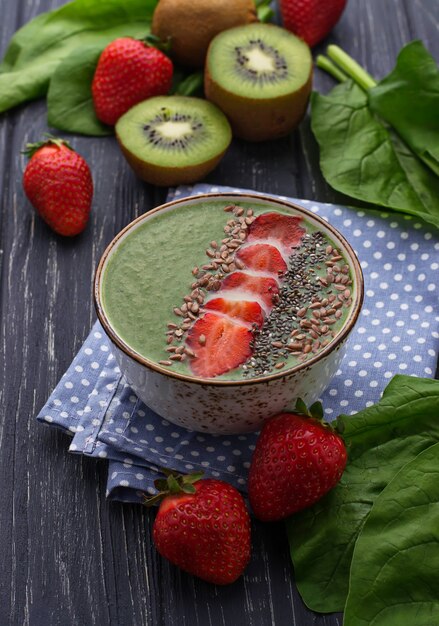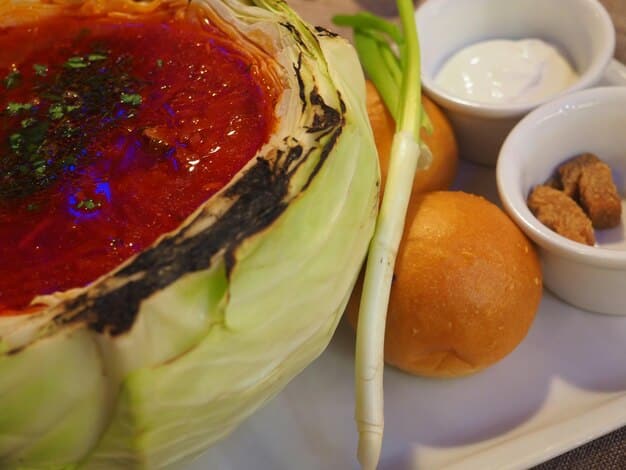Boosting Your Immune System Naturally: Expert Tips for 2025 Health

Boosting your immune system naturally involves a holistic approach, integrating nutrition, lifestyle modifications, stress management, and advanced natural strategies to enhance resilience against pathogens, ensuring robust health into 2025 and beyond.
In a world where health is increasingly paramount, understanding how to bolster our natural defenses becomes crucial.
Boosting your immune system naturally: expert tips for staying healthy in 2025 is not just a trend; it’s a foundational pillar for enduring well-being. This comprehensive guide will navigate you through actionable, science-backed strategies to fortify your body’s protective mechanisms.
Understanding the Immune System: Your Body’s Personal Shield
The immune system is an intricate network of cells, tissues, and organs that work together to defend the body against harmful invaders. It is our primary line of defense against infections, diseases, and environmental toxins. A robust immune system is vital for overall health and longevity, offering protection and promoting faster recovery when illnesses strike.
However, many factors can compromise its efficiency, including chronic stress, poor nutrition, lack of sleep, and exposure to environmental pollutants. Recognizing these vulnerabilities is the first step towards building a stronger defense. This section will delve into the fundamental components of the immune system and how they interact to maintain health.
Components of Innate and Adaptive Immunity
Our immune system operates on two main fronts: innate and adaptive immunity. The innate immune system provides immediate, non-specific defense against pathogens, acting as the body’s first responder. It’s an ancient system, ready to fight any invader it encounters.
Conversely, the adaptive (or acquired) immune system is highly specific and targeted. It “remembers” previous encounters with pathogens, leading to a more efficient and powerful response upon re-exposure. This is the basis of vaccination, where the body is trained to recognize and fight specific threats.
- Innate Immunity: Includes physical barriers like skin and mucous membranes, as well as cells such as phagocytes (macrophages, neutrophils) that engulf and destroy foreign particles.
- Adaptive Immunity: Involves specialized white blood cells like lymphocytes (T cells and B cells) that target specific antigens and produce antibodies for future protection.
- Lymphatic System: A crucial part of both systems, transporting immune cells and clearing waste products throughout the body.
Understanding the interplay between these components is essential. While innate immunity acts as the first line of defense, adaptive immunity provides long-term protection and memory, safeguarding us from future infections. Both need to be optimally functioning for comprehensive immune support.
Maintaining a balanced and responsive immune system isn’t about “boosting” it into overdrive, but rather nurturing its complex mechanisms so it can function effectively when needed. This starts with foundational health practices that support all parts of this remarkable system, ensuring it’s ready to face the challenges of 2025 and beyond.
The intricate design of our immune system is a testament to natural evolution, constantly adapting to new threats. Our goal is to provide it with the optimal conditions to perform its vital functions, ensuring resilience and vitality.
Nutrition as the Foundation: Fuelling Your Immune Resilience
What we eat profoundly impacts our immune system. Proper nutrition provides the essential building blocks and regulatory molecules required for immune cells to function optimally. Neglecting this aspect can lead to deficiencies that weaken defenses, making us more susceptible to illness.
In 2025, the focus on nutrient-dense whole foods remains paramount. Moving beyond fleeting diet trends, the emphasis is on sustainable eating patterns that consistently nourish the body. This involves a balanced intake of macronutrients (carbohydrates, proteins, fats) and a rich array of micronutrients (vitamins, minerals) that act as cofactors for countless immune processes.
Key Nutrients for Immune Support
Certain vitamins and minerals are particularly renowned for their immune-modulating properties. Ensuring adequate intake through diet or targeted supplementation can significantly enhance immune function. However, always prioritize whole food sources where possible, as nutrients work synergistically.
- Vitamin C: A powerful antioxidant that supports various cellular functions of both the innate and adaptive immune systems. Found in citrus fruits, bell peppers, and leafy greens.
- Vitamin D: Crucial for immune regulation; deficiency is linked to increased susceptibility to infection. Sources include sunlight exposure, fatty fish, and fortified foods.
- Zinc: Essential for the development and function of immune cells. Abundant in meat, shellfish, legumes, and nuts.
- Selenium: An antioxidant mineral that protects immune cells from damage and supports immune responses. Found in Brazil nuts, fish, and whole grains.
- Probiotics and Prebiotics: Gut health is intrinsically linked to immune health. Probiotics (beneficial bacteria) and prebiotics (fibers that feed these bacteria) foster a healthy gut microbiome, which in turn influences systemic immunity.
Beyond these specific nutrients, a diverse, plant-rich diet provides a wide spectrum of phytochemicals with anti-inflammatory and immune-enhancing properties. Eating a rainbow of fruits and vegetables ensures you receive a broad range of protective compounds. This holistic approach to nutrition recognizes that no single nutrient works in isolation.
The adage “you are what you eat” holds profound truth when it comes to immune health. Making informed dietary choices is a proactive step towards building a resilient immune system. Consider incorporating fermented foods like kimchi or sauerkraut for an extra probiotic boost, and lean on healthy fats found in avocados, nuts, and olive oil for their anti-inflammatory benefits.
In 2025, nutritional science continues to underscore the importance of tailored dietary approaches. While general guidelines are helpful, individual needs may vary. Consulting with a nutritionist can offer personalized advice, optimizing your diet for maximum immune benefit. Remember, consistency in healthy eating is key to long-term immune resilience.

The Power of Lifestyle: Beyond Diet and into Daily Habits
While nutrition lays the groundwork, daily lifestyle choices are equally critical in supporting a robust immune system. These habits influence everything from sleep quality to stress levels, all of which directly impact immune function. In 2025, embracing a holistic lifestyle becomes more important than ever for comprehensive health.
Integrating physical activity, ensuring adequate rest, and managing stress effectively are not merely supplementary actions; they are fundamental pillars of immune resilience. Each of these components contributes uniquely to the body’s ability to defend itself and maintain equilibrium.
Exercise: Movement as Medicine
Regular, moderate exercise can significantly enhance immune function. It increases the circulation of immune cells, allowing them to patrol the body more effectively and detect pathogens earlier. However, the key lies in moderation. Overtraining can have the opposite effect, temporarily suppressing immunity due to increased stress hormones.
Aim for a balance of aerobic activity, strength training, and flexibility exercises. Even brisk walking for 30 minutes most days of the week can yield substantial benefits. Listen to your body and find activities you enjoy to ensure long-term adherence.
- Aerobic Exercise: Increases heart rate and blood flow, improving circulation of immune cells. Examples: brisk walking, jogging, cycling, swimming.
- Strength Training: Builds muscle mass, which supports metabolic health and overall vitality. Examples: weightlifting, bodyweight exercises.
- Flexibility and Balance: Important for injury prevention and overall mobility. Examples: yoga, Pilates, stretching.
Exercise also helps reduce stress, improve sleep, and manage weight, all of which indirectly contribute to a stronger immune system. It’s a multifaceted tool for health, offering benefits far beyond immune support alone. Make movement a non-negotiable part of your daily routine.
Sleep: The Ultimate Immune Recharge
Sleep is when our body repairs and regenerates. During sleep, particularly deep sleep stages, the body produces and releases cytokines, which are proteins important for fighting infection and inflammation. Chronic sleep deprivation can suppress the immune system, making us more vulnerable to infections.
Aim for 7-9 hours of quality sleep per night. Establish a consistent sleep schedule, create a relaxing bedtime routine, and optimize your sleep environment for darkness, quiet, and a comfortable temperature. Avoid screens before bed, as the blue light can interfere with melatonin production.
Prioritizing sleep means recognizing its non-negotiable role in immune health. It’s not a luxury but a biological necessity. Think of it as your body’s nightly maintenance session, essential for keeping your defenses strong and ready.
Stress Management: Taming the Invisible Threat
Chronic stress is a known immune suppressor. When we’re stressed, the body releases cortisol, a hormone that can inhibit the production of important immune cells. Finding effective stress management techniques is therefore crucial for immune health.
Techniques such as mindfulness meditation, deep breathing exercises, spending time in nature, and engaging in hobbies can significantly reduce stress levels. Even short breaks throughout the day to practice mindful breathing can make a difference. The goal is to integrate stress-reducing practices into your daily life to mitigate its impact on your immune system.
A balanced lifestyle that incorporates regular movement, sufficient sleep, and effective stress management techniques provides a robust foundation for immune health. These practices synergistically support the body’s natural resilience, equipping it to handle environmental challenges and maintain optimal well-being in 2025 and beyond.
Hydration and Detoxification: Purity for Protection
Proper hydration and efficient detoxification pathways are often overlooked yet crucial components of immune health. Water is essential for every bodily function, including nutrient transport and waste elimination, both vital for immune system efficiency. Detoxification, on the other hand, involves the body’s processes to neutralize and eliminate harmful substances, preventing them from overwhelming immune defenses.
In 2025, with increasing awareness of environmental toxins, supporting the body’s natural ability to cleanse itself becomes even more relevant. This involves not only drinking enough water but also understanding how diet and lifestyle can support detoxification organs like the liver and kidneys, ensuring they function optimally to maintain a clean internal environment.
The Role of Water in Immunity
Water does more than just quench thirst. It is the primary component of lymph, the fluid that circulates immune cells and transports waste products away from tissues. Dehydration can impair lymphatic flow, reducing the efficiency with which immune cells reach infection sites and with which toxins are removed from the body.
Aim to drink at least eight 8-ounce glasses of water per day, or more if you are active or in a hot climate. Listen to your body’s thirst signals, and consider carrying a reusable water bottle to encourage consistent hydration. Adding a squeeze of lemon to water can also provide a small boost of Vitamin C and help stimulate digestive enzymes.
- Nutrient Transport: Water transports vitamins, minerals, and oxygen to cells, including immune cells, ensuring they have the resources to function.
- Waste Removal: Essential for kidney function, flushing out toxins and metabolic waste products.
- Mucous Membrane Health: Keeps mucous membranes (e.g., in the respiratory and digestive tracts) moist, which are a primary physical barrier against pathogens.
Ensuring adequate fluid intake supports not only the immune system directly but also overall cellular health, energy levels, and cognitive function. It is a simple yet profoundly impactful habit.
Supporting Natural Detoxification Pathways
Our bodies are equipped with sophisticated detoxification systems, primarily centered in the liver, kidneys, and gut. Supporting these organs helps relieve the burden on the immune system, allowing it to focus on fighting infections rather than dealing with internal toxins.
A diet rich in fiber, cruciferous vegetables (broccoli, cauliflower, cabbage), and antioxidants can significantly aid detoxification. These foods provide compounds that support liver enzymes involved in detoxification and promote healthy bowel movements, which are crucial for eliminating waste. Limiting processed foods, excessive alcohol, and exposure to environmental chemicals can also reduce the toxic load on the body.
Specific herbs and supplements, such as milk thistle or dandelion root, are sometimes used to support liver health. However, always consult a healthcare professional before incorporating new supplements into your regimen, especially if you have existing health conditions or are taking medications. The most effective approach remains one that focuses on clean eating and reducing exposure to toxins in the first place.
By consciously adopting practices that promote good hydration and efficient detoxification, we empower our immune system to operate at its peak. These measures contribute to a cleaner internal environment, where immune cells can respond effectively and efficiently to any threats, contributing to robust health in 2025 and beyond.
Herbal Allies and Strategic Supplementation: Targeted Support
While diet and lifestyle form the bedrock of immune health, certain herbs and supplements can offer targeted support, especially during periods of increased stress or when specific needs arise. The market for immune-boosting supplements is vast, but discerning high-quality, evidence-based options is crucial. In 2025, the emphasis remains on scientific validation and judicious use.
It’s important to approach supplementation as complementary to, not a replacement for, fundamental healthy habits. Always consult with a healthcare professional before adding new supplements to your routine, particularly if you have underlying health conditions or are taking medications.
Well-Researched Herbal Supports
Nature offers a bounty of plants with immune-modulating properties. These traditional remedies have been used for centuries and are increasingly supported by contemporary scientific research for their ability to enhance immune responses. They can be incorporated in various forms, such as teas, tinctures, or standardized extracts.
- Echinacea: Popular for its reported ability to stimulate immune cells and reduce the duration of common colds and flu. Best used at the onset of symptoms.
- Elderberry (Sambucus nigra): Rich in antioxidants and shown to have antiviral properties, potentially reducing the severity and duration of respiratory infections.
- Astragalus: A cornerstone of Traditional Chinese Medicine, known for its adaptogenic and immune-toning effects, particularly beneficial for long-term immune support.
- Ginger: Possesses potent anti-inflammatory and antioxidant properties, which can help calm an overactive immune response and support overall health.
When choosing herbal remedies, opt for reputable brands that provide standardized extracts, ensuring consistency and potency. Understanding the appropriate dosage and duration of use is also vital, as some herbs are better suited for acute use, while others can be taken for long-term preventive benefits.
Considerations for Strategic Supplementation
Beyond the essential vitamins and minerals discussed previously, certain other supplements may be considered for their direct immune benefits or for addressing specific deficiencies. Again, personalization is key, guided by individual needs and health status.
- Omega-3 Fatty Acids: Found in fish oil, flaxseeds, and walnuts, omega-3s are powerful anti-inflammatory agents, which can help regulate immune responses and prevent chronic inflammation from taxing the immune system.
- N-Acetyl Cysteine (NAC): A precursor to glutathione, the body’s master antioxidant, NAC supports detoxification and has mucolytic properties, useful for respiratory health.
- Reishi Mushrooms: These medicinal fungi contain beta-glucans, compounds known for their immune-modulating effects, supporting both innate and adaptive immunity.
Always prioritize obtaining nutrients from whole foods first. Supplements are intended to fill nutritional gaps or provide a targeted boost when diet alone isn’t sufficient. The immune system is complex, and a “magic pill” approach is unsustainable. A combined strategy of foundational lifestyle practices with judicious, expert-guided supplementation offers the most comprehensive path to boosting your immune system naturally in 2025.
The synergy between various natural immune supports is profound. For example, a healthy gut microbiome, fostered by a good diet and probiotics, can enhance the absorption and efficacy of many minerals and vitamins, further strengthening your body’s defenses.
Gut Health and Immunity: The Intestine-Immune Axis
The gut-immune axis is a rapidly expanding area of research, illustrating the profound connection between the health of our digestive system and the responsiveness of our immune system. Approximately 70-80% of our immune cells reside in the gut-associated lymphatic tissue (GALT), making the gut a major site of immune activity. A healthy gut microbiome, the community of microorganisms living in our intestines, plays a pivotal role in training and regulating immune responses.
In 2025, understanding and nurturing this connection is paramount for anyone seeking to naturally enhance their immune resilience. An imbalance in the gut microbiota, known as dysbiosis, can lead to chronic inflammation and a compromised immune system, making the body more susceptible to infections and autoimmune conditions.
The Microbiome’s Influence on Immunity
The trillions of bacteria, viruses, fungi, and other microorganisms in our gut actively communicate with our immune cells. They directly influence the development and function of immune cells, producing beneficial compounds like short-chain fatty acids (SCFAs), which have anti-inflammatory effects and provide energy for gut cells. A diverse and balanced microbiome is crucial for this intricate dialogue.
- Immune Education: Gut microbes help “educate” immune cells, teaching them to differentiate between harmful pathogens and beneficial substances.
- Barrier Function: A healthy microbiome strengthens the gut barrier, preventing toxins and undigested food particles from entering the bloodstream and triggering immune responses.
- Vitamin Production: Certain gut bacteria produce essential vitamins, like Vitamin K and some B vitamins, which are indirectly beneficial for overall health and immune function.
Dietary choices are the primary drivers of gut microbiome composition. A diet rich in diverse plant fibers, fermented foods, and minimal processed ingredients creates an environment conducive to beneficial microbial growth.
Strategies for Optimizing Gut Health
Cultivating a healthy gut microbiome involves consistent dietary and lifestyle choices. It’s not about quick fixes but about sustainable practices that support microbial diversity and balance over time.
- Consume Fermented Foods: Incorporate natural sources of probiotics like yogurt, kefir, sauerkraut, kimchi, and kombucha. These foods introduce beneficial bacteria directly into the gut.
- Eat Prebiotic-Rich Foods: Prebiotics are non-digestible fibers that act as food for beneficial gut bacteria. Excellent sources include garlic, onions, leeks, asparagus, bananas, and oats.
- Prioritize Fiber-Rich Whole Foods: A diverse intake of fruits, vegetables, whole grains, and legumes provides a broad spectrum of fibers, supporting microbial diversity.
- Limit Processed Foods and Sugar: These can feed harmful bacteria and promote inflammation, disrupting the delicate balance of the microbiome.
- Manage Stress: The gut-brain axis means stress can negatively impact gut motility and microbial balance. Incorporate stress-reduction techniques into your routine.
Occasionally, a targeted probiotic supplement may be beneficial, especially after antibiotic use, which can significant impact the gut microbiome. Choosing a multi-strain probiotic with a high CFU count is often recommended. However, always consult with a doctor or a registered dietitian to determine the most appropriate probiotic for your specific needs.
By actively fostering a healthy gut environment, we significantly enhance our body’s overall immune resilience. This comprehensive approach recognizes that internal balance is key to external strength, laying a powerful foundation for staying healthy in 2025 and beyond.

Environmental Factors and Immune Protection: Beyond the Body
Our immune system is constantly interacting with the environment around us. Beyond what we put into our bodies and the habits we cultivate, the external environment significantly influences our immune health. Factors such as air quality, exposure to toxins, and even social connections play a role in how robustly our immune system can perform. In 2025, as environmental concerns grow, acknowledging and mitigating these external stressors becomes an integral part of natural immune boosting.
Protecting ourselves from environmental pollutants and fostering positive social connections contributes to a holistic framework for immune resilience, reducing the burden on our internal defense mechanisms.
Minimizing Exposure to Environmental Toxins
Every day, we are exposed to a myriad of chemicals in our air, water, food, and household products. While the body is equipped to process these, chronic overload can stress detoxification pathways and modulate immune responses. Reducing exposure whenever possible can free up immune resources to fight genuine threats.
Consider the quality of the air you breathe: indoor air can often be more polluted than outdoor air. Use air purifiers, open windows for ventilation when safe, and incorporate indoor plants that help filter the air. When it comes to cleaning products, opt for natural, non-toxic alternatives. Similarly, for personal care products, choose those free from parabens, phthalates, and synthetic fragrances.
- Water Filtration: Invest in a good water filter for drinking and cooking to reduce exposure to chlorine, heavy metals, and other contaminants.
- Food Choices: Opt for organic produce when possible to minimize pesticide exposure. Wash all fruits and vegetables thoroughly.
- Reduce Plastics: Minimize use of plastic containers for food and drinks, especially when heating, to avoid leaching of endocrine-disrupting chemicals.
Awareness and conscious choices about our everyday environment can significantly lower the toxic burden on our bodies, allowing the immune system to operate more efficiently.
The Role of Social Connection and Emotional Well-being
Emerging research increasingly highlights the impact of social connection and emotional well-being on immune function. Loneliness and social isolation have been linked to increased inflammation and reduced immune responses, while strong social bonds are associated with better health outcomes.
Cultivating meaningful relationships, engaging in community activities, and practicing gratitude and positive thinking can directly influence immune health through the mind-body connection. These practices can reduce stress hormones and foster a sense of well-being, both of which are beneficial for immune resilience. Even short, positive social interactions can have a beneficial impact.
The immune system doesn’t operate in isolation; it is deeply intertwined with our psychological and social states. Nurturing a supportive social environment and fostering emotional balance are therefore powerful, albeit often underestimated, strategies for strengthening your immune defenses naturally. Embracing these broader environmental and psychosocial factors offers a holistic and comprehensive approach to staying healthy and resilient in 2025.
Future-Proofing Your Immunity: Long-Term Strategies for 2025 and Beyond
As we look towards 2025 and the years beyond, building a future-proof immune system requires a commitment to continuous learning and adaptation. It’s not about implementing a one-time change, but rather integrating a set of interconnected practices that evolve with us. This involves staying informed about new research, regularly assessing our habits, and maintaining a proactive stance on health.
The expert tips highlighted throughout this article—from foundational nutrition and lifestyle to targeted supplementation and environmental awareness—form a comprehensive blueprint. The key to long-term success lies in consistency, personalization, and a holistic perspective that acknowledges the intricate balance of the human body.
Embracing a Proactive Health Mindset
Shifting from a reactive “cure-when-sick” mentality to a proactive “prevent-and-thrive” approach is fundamental. This means prioritizing regular check-ups, listening to your body’s signals, and promptly addressing any health concerns. Early intervention and consistent self-care can prevent minor issues from escalating into major immune challenges.
Consider periodic health assessments that might include nutrient level checks or gut microbiome analyses, allowing for highly personalized adjustments to your natural immune-boosting strategy. Staying curious and open to new, evidence-based approaches will also be vital.
Consistency and Adaptation
Immune health is a journey, not a destination. The benefits of healthy habits accumulate over time. A single healthy meal or a one-off workout won’t dramatically alter your immune system, but consistent healthy patterns will build profound resilience. Conversely, occasional slips won’t undo all your progress. The goal is sustainable consistency.
Furthermore, life circumstances change, and so too might our immune needs. Periods of increased stress, travel, or seasonal changes might necessitate temporary adjustments to diet, sleep, or supplementation. Being adaptable and responsive to these shifts ensures your immune system receives the support it needs, precisely when it needs it most.
- Regular Self-Assessment: Periodically review your diet, sleep patterns, stress levels, and exercise routine. Are there areas that need more attention?
- Stay Informed: Follow reputable sources for health and immunity research. Be discerning about information, prioritizing peer-reviewed science over anecdotal claims.
- Seek Professional Guidance: Don’t hesitate to consult with doctors, registered dietitians, or immunologists for personalized advice, especially if you have chronic health conditions or specific concerns.
Ultimately, boosting your immune system naturally is about empowering your body’s innate capabilities. By making informed choices about what you eat, how you live, and how you manage environmental exposures, you are investing in a powerful shield against future health challenges. These expert tips provide a robust framework, designed not just for 2025, but for a lifetime of vibrant, resilient health.
The journey of immune optimization is continuous. It’s a lifestyle choice that yields compounded benefits, ensuring you remain vibrant and well-prepared for whatever the future holds.
| Key Immune Factor | Brief Description |
|---|---|
| 🍎 Nutrition | Whole foods, vitamins (C, D, Zinc), and pre/probiotics nourish immune cells and fortify gut health. |
| 🛌 Lifestyle | Adequate sleep, regular exercise, and effective stress management significantly enhance immune resilience. |
| 💧 Hydration & Detox | Proper water intake and supported detoxification pathways keep the body clean, reducing immune burden. |
| 🌿 Herbal Support | Targeted herbs and supplements can offer specific immune benefits when chosen carefully with expert advice. |
Frequently Asked Questions About Immune Health
While some changes can be felt relatively quickly, significant immune system strengthening is a gradual process. Consistent healthy habits, such as balanced nutrition, adequate sleep, and stress reduction, build robust immunity over weeks to months. Acute changes like severe stress can temporarily suppress immunity, but consistent positive actions yield lasting benefits.
Generally, methods like healthy eating, exercise, and stress management are safe and highly beneficial. However, excessive self-supplementation with certain vitamins (e.g., Vitamin A, C, D) or herbs without professional guidance can lead to adverse effects. Always consult a healthcare provider before taking high doses of supplements or combining multiple remedies, especially if you have pre-existing conditions.
Yes, a diet high in processed foods, refined sugars, and unhealthy fats can contribute to chronic inflammation, which can suppress immune function. These foods often lack essential nutrients and can disrupt the gut microbiome, further compromising immune health. Prioritizing whole, unprocessed foods supports a balanced and resilient immune system.
Chronic stress leads to the sustained release of hormones like cortisol, which can suppress the activity of immune cells and increase inflammation throughout the body. This makes you more susceptible to infections and can worsen chronic conditions. Effective stress management techniques are therefore crucial for maintaining strong immune defenses.
While generally positive, some conditions like autoimmune diseases involve an overactive immune system. In such cases, “boosting” might exacerbate symptoms. For healthy individuals, the concept of “over-boosting” through natural means is less about hyper-response and more about balance. The goal is to support its intelligent function, not to push it into overdrive. Always seek personalized medical advice.
Conclusion
The journey to boosting your immune system naturally in 2025 and beyond is a holistic endeavor, weaving together the threads of nutrition, lifestyle, environmental awareness, and targeted support. It’s about empowering your body’s inherent capacity for resilience through consistent, informed choices. By embracing a diet rich in whole foods, prioritizing restful sleep, engaging in regular physical activity, mastering stress management, nurturing gut health, and minimizing exposure to environmental toxins, you lay a robust foundation for lasting well-being. These synergistic strategies, far from being fleeting trends, are timeless principles for cultivating profound immune resilience and ensuring a vigorous, healthy future.





